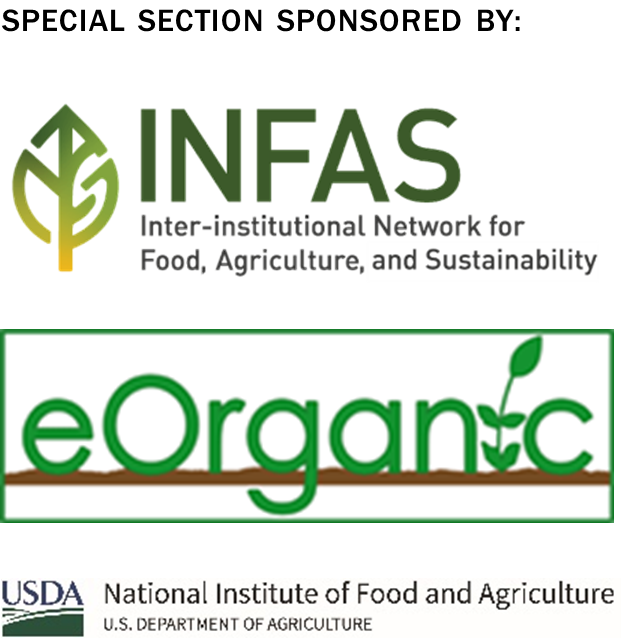Climate resilient food systems and community reconnection through radical seed diversity
DOI:
https://doi.org/10.5304/jafscd.2024.132.007
Keywords:
agrobiodiversity, climate resilience, relational seed-keeping, regional adaptation, seed preservation, collards, landrace, ultracross, plant breeding, community seed-saving, food systems, heirloomAbstract
Diversity is essential to climate resilience in food and farming. Traditionally, agrobiodiversity has been cultivated and sustained through communities’ relationships with seeds. A fluid process of saving, preserving, and exchanging seeds allows for regional adaptation and transformation. This process results in seed diversity at the crop, variety, and genetic level. Over the last century, agrobiodiversity has declined at an alarming rate, and simultaneously there has been an erosion of community seed-keeping practices. A reaction to these interrelated crises has been an increased push to preserve biodiversity through institutional seed preservation efforts (also called ex situ preservation), which focus on genetic preservation of seeds in controlled environments. The seeds are genetic resources that are made available to plant breeders, who solve agronomic problems by creating improved cultivars for farmers. This is very different from community seed-keeping (also called in situ preservation), which values seed-people relationships and fosters natural agrobiodiversity and regional adaptation. Seeds are seen in direct connection to food, and saved for immediate and practical reasons like yield, flavor, and resistance to biotic stressors. In traditional communities, seeds are often perceived as kin, as ancestors or living beings with both histories and futures. For institutional seed preservation, collecting and maintaining seed diversity is an imperative insurance policy against future challenges. Ironically, this model erodes community-based seed-keeping efforts and increases dependence on institutional seed preservation to maintain genetic diversity. In this paper, we explore declining agrobiodiversity and community seed-keeping and share our experiences working with a diverse range of varieties from The Heirloom Collard Project (HCP). We propose that radical seed diversity can jump-start autonomous, community-based seed-keeping efforts, increasing agrobiodiversity and, ultimately, the climate resilience of food systems.
Metrics

Downloads
Published
How to Cite
Issue
Section
License
Copyright (c) 2024 Chris Smith

This work is licensed under a Creative Commons Attribution 4.0 International License.
The copyright to all content published in JAFSCD belongs to the author(s). It is licensed as CC BY 4.0. This license determines how you may reprint, copy, distribute, or otherwise share JAFSCD content.












